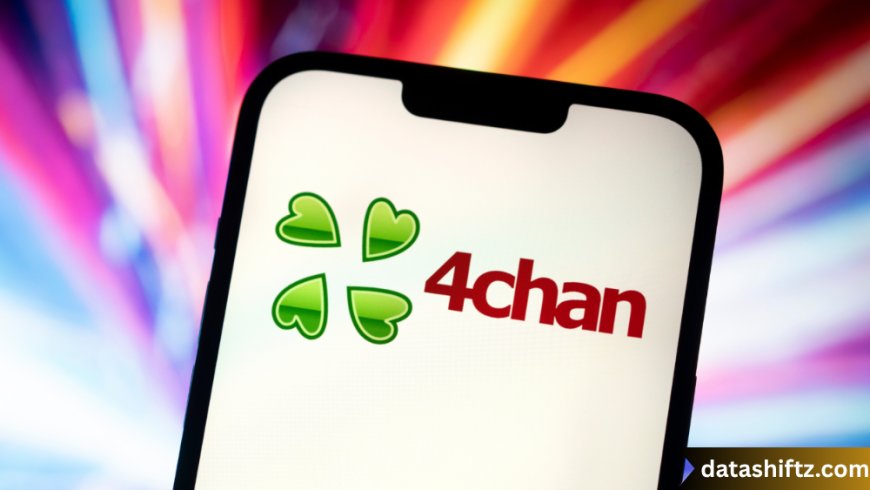Understanding 4chan: The Infamous Imageboard That Changed the Internet

Introduction
In the vast world of the internet, a few websites have managed to shape the digital culture in profound and sometimes controversial ways. Among these is 4chan, an anonymous English-language imageboard that has become one of the internet’s most influential — and infamous — platforms. Founded in 2003, 4chan has been home to countless memes, viral movements, online activism, and darker controversies. Despite its unfiltered and chaotic nature, its cultural footprint on digital communities and internet trends is undeniable.
This blog explores the history, structure, impact, and controversies surrounding 4chan. Whether you're a digital culture enthusiast, a researcher, or simply curious, this comprehensive guide will help you understand how 4chan operates and why it matters.
What is 4chan?
A Brief Overview
4chan is an imageboard website where users can post images and messages anonymously. It is divided into multiple boards, each with its own specific topic — ranging from Japanese anime and technology to politics and adult content. Its anonymous posting model allows users to interact without the need to register or create user profiles, fostering both freedom and chaos.
Founding and Early Days
4chan was launched on October 1, 2003, by Christopher Poole, also known online as "moot." It was inspired by the Japanese imageboard 2chan (Futaba Channel) and initially served as a forum for anime and manga fans. Quickly, however, the site's scope expanded to include a broad range of topics and content.
How 4chan Works
Structure and Boards
4chan is made up of various boards, each represented by a short alphanumeric code (e.g., /b/, /pol/, /g/). Each board has a unique theme and set of rules. Here’s a look at the most notable boards:
| Board | Code | Description |
|---|---|---|
| Random | /b/ | Anything goes; origin of many memes |
| Politically Incorrect | /pol/ | Discuss politics, often controversial |
| Technology | /g/ | Tech news, hardware, and software discussions |
| Anime & Manga | /a/ | Japanese animation and comic content |
| Video Games | /v/ | Video game news, reviews, and discussion |
| Worksafe GIF | /wsg/ | Looping image content that is safe for work |
Key Features
-
Anonymity: No login or registration is required.
-
Ephemerality: Threads are not permanent; old threads are deleted to make space for new ones.
-
Memes and Media: Users often create, remix, and spread internet memes.
-
Minimal Moderation: Compared to other platforms, 4chan has less moderation, leading to greater freedom — and greater risks.
Cultural Impact of 4chan
Memes That Changed the Internet
4chan has given birth to many of the internet’s most iconic memes and cultural trends. Here's a list of popular memes that originated or were popularized on 4chan:
-
Rickrolling – The bait-and-switch meme featuring Rick Astley’s Never Gonna Give You Up.
-
LOLcats – Pictures of cats with funny captions, later leading to platforms like ICanHasCheezburger.
-
Pepe the Frog – A cartoon frog that became one of the most recognizable — and controversial — memes.
-
Greentext stories – Narratives told in a specific formatting style using “>” before each line.
-
Anonymous collective – An internet activist group that originated from 4chan's /b/ board.
Activism and "Hacktivism"
The Anonymous movement, known for its Guy Fawkes masks and cyber protests, was born on 4chan. It gained fame for actions like:
-
Project Chanology: Protests against the Church of Scientology.
-
#OpISIS: Campaigns against online terrorist propaganda.
-
Anti-SOPA/PIPA activism: Participation in protests against internet censorship legislation.
The Dark Side of 4chan
Controversies and Legal Issues
With anonymity comes a lack of accountability. Over the years, 4chan has faced intense scrutiny and criticism for:
-
Hosting illegal content: Including revenge porn, child exploitation materials (which moderators now remove strictly).
-
Online harassment: Users have coordinated harassment campaigns against individuals and public figures.
-
Racism, sexism, and extremism: Especially on boards like /pol/, known for hate speech and radical ideology.
-
Swatting and doxxing incidents: Involving users revealing others' personal information or calling emergency services on them.
Major 4chan Controversies
| Year | Controversy | Description |
|---|---|---|
| 2008 | Project Chanology | Protests against Scientology |
| 2011 | Sony Hack | Alleged involvement in online attacks |
| 2014 | Celebgate | Leak of private celebrity photos |
| 2017 | QAnon Origins | Conspiracy theory movement began in /pol/ |
| 2019 | Christchurch Shooting | Gunman posted manifesto on 8chan, a 4chan offshoot |
4chan vs. 8chan
Due to increased scrutiny, many users migrated to 8chan (now 8kun), a platform similar to 4chan but with even fewer restrictions. 8chan gained notoriety for hosting manifestos of mass shooters and was removed from the web multiple times.
4chan in the Modern Age
Ownership and Evolution
In 2015, founder Christopher Poole stepped down and sold 4chan to Hiroyuki Nishimura, the founder of the Japanese 2channel. Under his ownership, moderation has slightly increased, but the core identity of the site remains the same: anarchic, anonymous, and unpredictable.
Current Status and User Base
While its influence has waned with the rise of Reddit, Twitter, and Discord, 4chan still hosts a loyal user base, especially in niche subcultures like anime, gaming, and internet history. The /pol/ board remains one of the most active and controversial sections.
Why 4chan Still Matters
Despite its many problems, 4chan’s impact on the internet zeitgeist cannot be overstated. It is:
-
A digital laboratory for memes and internet slang.
-
A window into the extremes of online free speech.
-
A platform where both creativity and chaos thrive.
Pros and Cons of 4chan
Pros:
-
Complete anonymity
-
Creative freedom and meme culture
-
Fast-paced discussions
-
Platform for grassroots activism
Cons:
-
Toxic and offensive content
-
No user accountability
-
Prone to extremism and illegal activities
-
Vulnerable to abuse and harassment
Conclusion
4chan is a paradoxical space on the internet — at once fascinating and disturbing, innovative and dangerous. It represents both the best and worst aspects of online culture. While other platforms have since overtaken it in popularity and influence, 4chan remains a digital underworld where the internet’s past, present, and future collide.





























